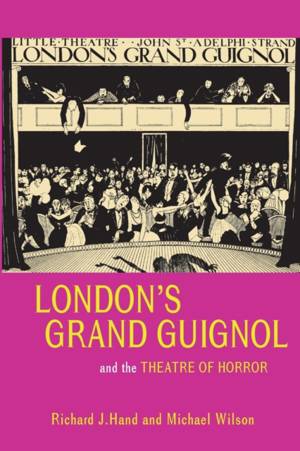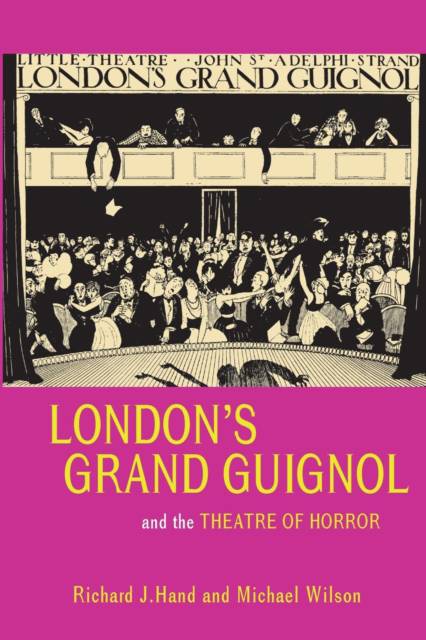
- Afhalen na 1 uur in een winkel met voorraad
- Gratis thuislevering in België vanaf € 30
- Ruim aanbod met 7 miljoen producten
- Afhalen na 1 uur in een winkel met voorraad
- Gratis thuislevering in België vanaf € 30
- Ruim aanbod met 7 miljoen producten
Zoeken
€ 55,95
+ 111 punten
Omschrijving
A companion to UEP's Grand-Guignol: The French Theatre of Horror (now in its third reprint). A genre that has left more of a mark on British and American culture than we may imagine' (Gothic Studies). London's Grand Guignol was established in the early 1920s at the Little Theatre in the West End. It was a high-profile venture that enjoyed popular success as much as critical controversy. On its side were some of the finest actors on the English stage, in the shape of Sybil Thorndike and Lewis Casson, and a team of extremely able writers, including Noel Coward. London's Grand Guignol and the Theatre of Horror considers the importance and influence of the English Grand Guignol within its social, cultural and historical contexts. It also presents a selection of ten remakarble English-language Grand Guignol plays, some of which were banned by the Lord Chamberlain, the censor of the day, and have never been published or publicly performed. Among the plays in the book is a previously unpublished work by Noel Coward, The Better Half, first performed at the Little Theatre in 1922. The reviewer in the journal Gothic Studies wrote, of the authors' previous book: 'having recently taught a module on Grand Guignol with third year drama students, it is also worth noting that this book captured their imaginations in a way that few other set texts seem to manage.'
Specificaties
Betrokkenen
- Auteur(s):
- Uitgeverij:
Inhoud
- Aantal bladzijden:
- 304
- Taal:
- Engels
- Reeks:
Eigenschappen
- Productcode (EAN):
- 9780859897921
- Verschijningsdatum:
- 14/12/2007
- Uitvoering:
- Paperback
- Formaat:
- Trade paperback (VS)
- Afmetingen:
- 152 mm x 229 mm
- Gewicht:
- 498 g

Alleen bij Standaard Boekhandel
+ 111 punten op je klantenkaart van Standaard Boekhandel
Beoordelingen
We publiceren alleen reviews die voldoen aan de voorwaarden voor reviews. Bekijk onze voorwaarden voor reviews.








